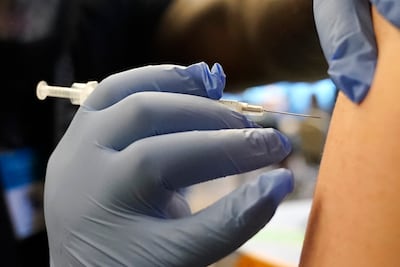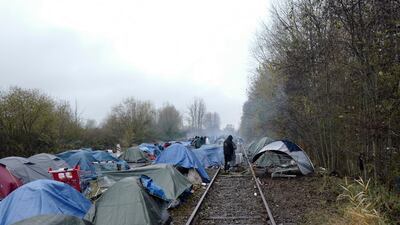Global health experts say a lack of identity cards is hindering refugees and migrants trying to gain access to Covid-19 vaccines.
Dr Kanokporn Kaojaroen, of the World Health Organisation's Health and Migration Programme, says many countries require people to have identity cards to receive the vaccine this is hampering efforts to provide healthcare for refugees.
She says many fear being deported if they are required to apply for a card.
Speaking at a webinar hosted by the Chatham House think tank on the challenges faced by migrants when gaining access to vaccinations, she said another barrier is misinformation.
“Thirty-five per cent of the world's population have not received the vaccine, in the African regions it is still 83 per cent of the population that have not received a single dose,” she said.
“There is a disparity in terms of global vaccines. In many countries you are required to have an ID card, many of the refugees do not have such a thing and we have the issue that they fear they might be deported.
“In some cultures they do want to get the vaccine. Another barrier is knowledge, there is a lot of misinformation and often they do not know where to get access to the vaccine.
“We have seen some lessons learnt, we have to address the bottlenecks of getting the vaccine into the arms of people. [Presently] we do not have a clear picture of how many refugees or migrants have received the vaccine.”
She said it is difficult to gain access to clear data on the number of refugees who have received the vaccine.
Talha Jalal, senior manager, at Gavi, the Vaccine Alliance, said refugees need to be part of vaccine programmes.
“A new variant and another pandemic are evolutionary certainties, and our collective preparedness is incomplete without the inclusion of refugees and migrants,” he said.

“When we look at the 17 lower income countries, including Afghanistan, they account for 25 per cent of all unvaccinated children in the world. They have only received 12 per cent of Covid-19 vaccines.
“The toll of the pandemic has been very unequal, for every one person in a wealthy country another four die in a poor country. We do have quite a few lessons to learn in terms of what works and what doesn't.”
Dr Apostolos Veizis, executive director of Greek health organisation Intersos Hellas, said it took the Greek government six months to start the vaccinations in migrant camps.
Earlier this week a report by Human Rights Watch warned that the vaccination rate among Palestinians, Syrians and migrant workers, who collectively make up a third of Lebanon's population, is so low that it could jeopardise nationwide efforts to fight the disease.
UN data shows that Syrian and Palestinian refugees have died from Covid-19 at a rate more than four and three times the national average, respectively.


